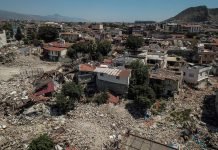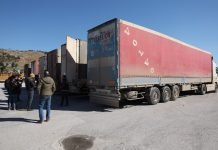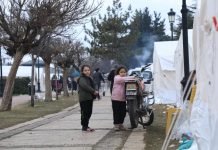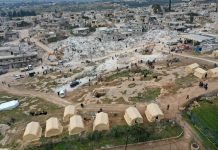UN Women said in an assessment report that Turkish women and girls have faced particular challenges in term of access to essential services and vital relief items, of remaining safe and of covering their basic needs in provinces hit by devastating earthquakes in early February, ReliefWeb reported on Wednesday.
According to the UN agency, girls and women’s care and domestic work responsibilities have increased significantly, due to both increased demand for care of children, the elderly and the disabled as well as domestic work, which was disproportionately performed by women prior to the disaster.
A 7.8-magnitude earthquake that struck near the Turkish city of Gaziantep – home to around 2 million people and on the border with Syria – as people were sleeping on February 6 was followed by dozens of aftershocks, including a 7.5-magnitude temblor that jolted the region in the middle of search and rescue efforts the same day.
“Agriculture is one of the main sectors in the region. Almost all women employed in the agriculture sector work as unpaid family worker (78.7%; 20.2% for men), thus are deprived of social security benefits, health insurance, trade union rights and subject to poor working conditions and low wages,” UN Women said.
According to the UN agency, having more female aid workers, frontline responders and assessment enumerators on the ground is critical for aid organizations.
“Female respondents also highlight that people in their district require specific food items for infants (formula), sanitary pads to be included in standard hygiene kit distributions, maternal, sexual and reproductive health services as well as psychosocial support including specifically for children and survivors of traumatic events,” the report said.
According to relief organizations, the impact of the earthquakes will be felt for months and years to come.
Around 2.7 million people remain internally displaced in the country. Shelter, water sanitation facilities, healthcare, protection (including mental health and psychosocial support) and continuity of learning remain priority needs, according to UNICEF Turkey.
The damage in Turkey alone could amount to over $100 billion, the UN said and launched a $1 billion funding appeal to support millions of people in Turkey.















